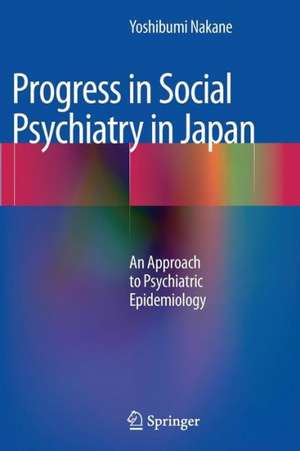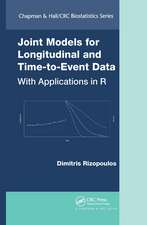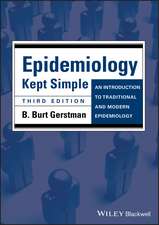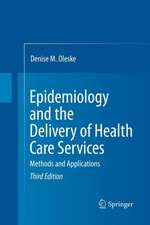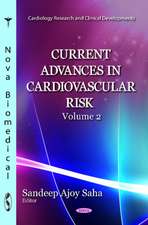Progress in Social Psychiatry in Japan: An Approach to Psychiatric Epidemiology
Autor Yoshibumi Nakaneen Limba Engleză Paperback – 9 noi 2014
| Toate formatele și edițiile | Preț | Express |
|---|---|---|
| Paperback (1) | 696.96 lei 39-44 zile | |
| Springer – 9 noi 2014 | 696.96 lei 39-44 zile | |
| Hardback (1) | 702.94 lei 6-8 săpt. | |
| Springer – 31 oct 2012 | 702.94 lei 6-8 săpt. |
Preț: 696.96 lei
Preț vechi: 733.65 lei
-5% Nou
Puncte Express: 1045
Preț estimativ în valută:
133.45€ • 138.96$ • 110.72£
133.45€ • 138.96$ • 110.72£
Carte tipărită la comandă
Livrare economică 10-15 februarie
Preluare comenzi: 021 569.72.76
Specificații
ISBN-13: 9784431547297
ISBN-10: 4431547290
Pagini: 156
Ilustrații: X, 146 p.
Dimensiuni: 155 x 235 x 8 mm
Greutate: 0.23 kg
Ediția:2012
Editura: Springer
Colecția Springer
Locul publicării:Tokyo, Japan
ISBN-10: 4431547290
Pagini: 156
Ilustrații: X, 146 p.
Dimensiuni: 155 x 235 x 8 mm
Greutate: 0.23 kg
Ediția:2012
Editura: Springer
Colecția Springer
Locul publicării:Tokyo, Japan
Public țintă
Professional/practitionerCuprins
Introduction.- I. Social Psychiatry and Psychiatric Epidemiology.- 1. Definition and Historical Review of Social Psychiatry and Psychiatric Epidemiology.- 1-1. Social Psychiatry and the Japanese Society of Social Psychiatry (JSSP).- 1-2. Psychiatric Epidemiology.- 2. The Foundation of Psychiatric Epidemiology Research.- 2-1. Methodological Foundation.- 2-2. Ethics in Study Methods.- 2-3. Subjects of Epidemiological Studies in Psychiatry.- II. Findings on Social Psychiatry and Psychiatric Epidemiology in Japan.- 3. Activities of the Department of Neuropsychiatry, Nagasaki University School of Medicine, as a World Health Organization (WHO) Collaborating Center.- 4. Studies on Schizophrenia.- 4-1. Incidence Rates, Prevalence Rates, and Other Statistics.- 4-2. Findings of the WHO Collaborating Center in Nagasaki.- 4-3. Outline of Scales Used in the First Assessment for WHO/DOSMeD.- 4-4. Help-Seeking Patterns and Recognition by Family Members (Key Persons) in New Schizophrenia Cases in DOSMeD/Nagasaki.- 4-5. Subtypes of Schizophrenia.- 4-6. Psychiatric Symptoms of New Schizophrenia Cases in DOSMed/Nagasaki.- 4-7. Life Events and the Development of New Schizophrenia Cases in DOSMed/Nagasaki.- 4-8. Natural History and Outcome (in the Short and Long Term), and Associated Factors of New Schizophrenia Cases in DOSMed/Nagasaki.- 5. Studies on Affective Disorders.- 5-1. WHO World Mental Health Survey in Japan (WHO/WMH-J).- 5-2. Summary of the Study on the Standardized Assessment of Depressive Disorder (SADD).- 6. Studies on Patients with Affective Disorders in General Practice.- 6-1. Studies on Referral Rates in Patients with Depression in the General Health Care Setting.- 6-2. Studies on Medical Care in Patients with Psychological Problems in the General Health Care Setting.- 7. Development from Atomic Bomb Diseases to Survivors’ Mental Health Support: Findings on Disaster Psychiatry.- Appendix Medical Office (Ikyoku).- Epilogue Further Developments in SocialPsychiatry and Psychiatric Epidemiology.
Notă biografică
Professor emeritus, Nagasaki University School (May, 2003 - ).
Director, Health Management Center Nagasaki Atomic Bomb Casualty Council.
Chief, Dejima Shinryosyo. (Dejima Mental Clinic)
Director, Health Management Center Nagasaki Atomic Bomb Casualty Council.
Chief, Dejima Shinryosyo. (Dejima Mental Clinic)
Textul de pe ultima copertă
Social psychiatry is a multidisciplinary field that analyzes mechanisms of mental health issues comprehensively to contribute to society using the findings. These findings include biological, psychological, and social aspects and are based on psychiatry and connected with a wide variety of academic fields, including psychology, sociology, law, economics, and religious studies.
Epidemiological research in psychiatry is a field of study in patients with psychiatric disorders that investigates causes in order to develop clinical applications of the results, and to create applications to health services plans for individuals and/or communities.
Written by a leading authority on social psychiatry and psychiatric epidemiology who has been residing in Nagasaki for most of his life, and also worked as a head of the WHO Collaborating Centre for Research and Training in Mental Health, it describes not only outstanding epidemiological studies and mental support reports for atomic bomb sufferers but also international collaborative projects on schizophrenia, affective disorders, and common mental disorders.
This book provides a valuable resource not only for physicians and researchers in the field of psychiatry and mental health but for all those who work in the field of mental health.
Epidemiological research in psychiatry is a field of study in patients with psychiatric disorders that investigates causes in order to develop clinical applications of the results, and to create applications to health services plans for individuals and/or communities.
Written by a leading authority on social psychiatry and psychiatric epidemiology who has been residing in Nagasaki for most of his life, and also worked as a head of the WHO Collaborating Centre for Research and Training in Mental Health, it describes not only outstanding epidemiological studies and mental support reports for atomic bomb sufferers but also international collaborative projects on schizophrenia, affective disorders, and common mental disorders.
This book provides a valuable resource not only for physicians and researchers in the field of psychiatry and mental health but for all those who work in the field of mental health.
Caracteristici
A unique and comprehensive book that pursues an evidence-based approach to provide concise summaries of research projects on schizophrenia Affective disorders and psychiatric disorders in the general practice setting, but also epidemiological references Including disaster-based psychiatric disorders, e.g. from atomic bomb-related diseases
